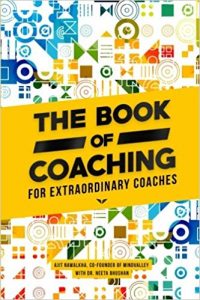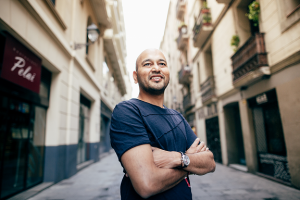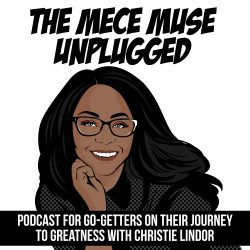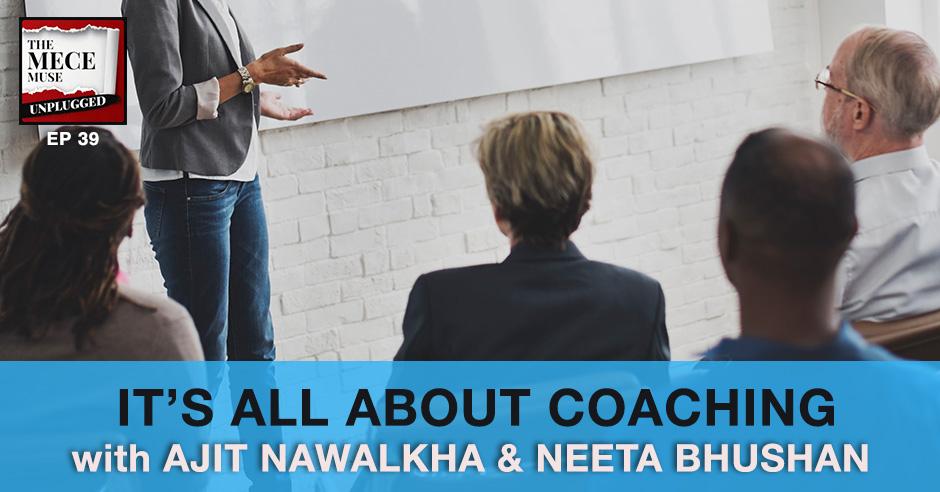Quick Wins interview with powerful couple, entrepreneurs, & co-authors Ajit Nawalkha and Neeta Bhushan. Ajit is the Founder of Evercoach, a coaching/training company, and Neeta is the Founder of The Global Grit Institute. They wrote a book together called The Book of Coaching.
In this interview, Ajit & Neeta provides perspectives on what good coaching looks like, the difference between a coach, mentor, and trainer. They also share how consultants can develop & use coaching skills as a competitive advantage.
Listen to the Episode Here:
Podcast: Play in new window | Download | Embed
Subscribe: Apple Podcasts | Email | TuneIn | RSS | More
We’re going to be doing a Quick Ones interview. Quick Ones are when I have the opportunity to connect with individuals, discussing products, ideas, and services to help round out your consulting toolkit. We got a couple of guests. They are serial entrepreneurs, super rock stars. They are both best-selling authors, and they are a power couple. This is our first couple on The MECE Muse, but we’re thrilled to have Ajit Nawalkha and Neeta Bhushan join us. Ajit is the Founder of Evercoach, which is his coaching organization. Neeta is the Founder of the Global Grit Institute and they both decided to get together and co-author a book called The Book of Coaching. We have a chance to talk about coaching. That seems to be a big buzzword these days, especially if you go online and look at a lot of solopreneurs out there.
There’s a lot of coaching going on out there in the world. I’ve had questions of people asking me, “What’s the difference between a coach and a mentor or a coach and a trainer?” Ajit and Neeta come in to share a little bit about their insights, how they got started. They both transitioned into the entrepreneurial space, and they share their differences of definition of a coach, mentor, and trainer, and how you can leverage all of these different resources for any personal, professional, or organizational transformation. They also share how you as a consultant can leverage coaching as a skill set that you can bring to your clients. It’s an important, informative conversation. I look forward to having both Ajit and Neeta come and talk about being a couple and working together. That’s a pretty unique instance and I’d love to hear their perspective.
Interview with Ajit Nawalkha & Neeta Bhushan
Neeta and Ajit, thank you so much for joining us on The MECE Muse Unplugged. How are you both doing?
Awesome. Excited to be here.
Can each of you take a moment and just introduce yourselves?
I wear many hats as many consultants and entrepreneurs do. I’m Founder of the Global Grit Institute, authored two best-selling books, created the SchoolOfGrit.TV, and I run a business accelerator. I speak all around the world helping entrepreneurs create their greatest masterpiece in a book.

My name is Ajit but my nickname is AJ for this conversation. I am Co-Founder of Evercoach, Co-Founder of Mind Valley, a co-author of The Book of Coaching and a global traveler and lover of life.
You both sound not only busy but you’re living fabulous lives. How did you get started? It seems like you’re both doing a couple of things similar, but some things very different. How did you decide to start this journey?
We did start at very different places. My journey started in Jaipur, India. That’s where I’m from. Neeta’s journey started in Chicago. Our journey together started about four or five years ago, at an event called A-Fest that my company puts together, and Neeta was attending that event. We met there for the first time. At that time, I was with somebody else and Neeta was in her transition period as a former dentist. We stayed connected for some reason and that connection rekindled about two years ago. That first started as a love affair, and we started playing together as life partners.
I was working on my first book because I exited the healthcare profession. I was a cosmetic dentist for close to a decade. I was, in a lot of ways, coaching and mentoring inadvertently many female professionals because a lot of times, we don’t learn the business aspects of dentistry in school, medical school, dental school. It’s pretty much the same thing. From my early beginnings, I learned a lot around entrepreneurship and so I knew how to build small businesses. I was able to start transitioning early and that led me to sell my practice, retire from the profession itself, and start a consulting business.
I was a consultant to dentists, doctors, and chiropractors, and then I was on a spiritual journey and awakening which landed me to Malaysia, which is where Ajit was at the time. It ended up him coaching me on scaling the business globally and I was coaching him on leadership stuff, which then led into a little bit of a love affair. In the medical world, that would be malpractice, but that’s how we started because that’s how we met, and so us together started there and then the journey continued.
As Neeta mentioned, she was already working with leaders and educators and so forth and scaling their businesses and helping them work on the emotional side and their resilience. I was focused on building Evercoach as a brand at that time. We decided that we want to do life differently, do love differently, and so we set our sails and started traveling around the world. While we were in the middle of traveling across 25 different countries, we’ve decided that there was an opportunity that lies for both of us to partner up and create things together too, not just our own verticals, but a lot of the work that we do synergize together. Most of the work that we do synergizes and we did together and some of the works were the companies that we do still pursue, which are slightly different like School of Grit or Evercoach, we pursue independently but still together as one team.
There’s still an integration. It was the idea that we were both building our entrepreneurial dreams, and we’ve both been married before. If we learned from that and do something differently, what would that be? Having known better in all these things, because he was traveling a bunch and I was traveling a bunch, how we can merge together and get into our ninja genius zone and merge that. That’s what bursts The Book of Coaching among other things and leadership and being able to scale businesses that were like, “Let’s marry these two parts and let’s see what the result is.” That’s some of our projects right now, so it’s been amazing.
I would love for both of you to just take that brief moment and talk a little bit about Evercoach, and if you can talk a little bit about your Global Grit Institute, that would be great.
A few years ago when I first started my journey as an entrepreneur, I started as an intern in a company called the Mind Valley, which is an education space but more on the personal excellence side of things. While I was working with the company, I realized that I myself had a lot of passion around building businesses. I decided starting a company, like many companies on the side while partnering with Mind Valley, eventually realizing that one of the things that have made the greatest impact in my life was coaches and teachers that showed up when I need them, especially when I was just starting out as a little kid from India who didn’t know much or didn’t have any abundance or intellect or a lot of degrees to support what type success you would think one would want. I realized that coaches, educators, and teachers showed up and helped me transform my life. I get to live a life that I’m eternally grateful for because of these individuals showing up at different times, sometimes even when I couldn’t afford them. That gave me a drive to say, “If I could ever help this category of people, I’d love to help them.”
I started meeting a lot of coaches, educators, teachers, and speakers who are good at what they did but they just didn’t know how to make it all work. They didn’t know how to make the finances work. They didn’t know how to make impact on their clients. They knew some bits but they were not nailing it. They didn’t know how to deal with themselves while creating all of that. They were living very different lives and there was so much noise in the mind that was hard for them to figure it out what is the right way to do it. I had done this for a while at that point.
I was CEO of Mind Valley and I built many companies at that point, so I said, “Why not focus my next plans towards helping coaches, educators, and teachers build their businesses and help them navigate this whole ecosystem?” That’s how Evercoach started and that’s what Evercoach is now. It is a platform for coaches, speakers, educators, and transformation leaders to come together and learn from the best, get the strategies and the tactics to not only work on yourself as a human being, but work on your methodology and work on your business and be able to take your business to the next level.
Maybe you can talk a little bit about Global Grit.
I help entrepreneurs who are transitioning from either an exit from their own company or they have retired from one profession. I do get a lot of physicians, doctors, and dentists who have exited or who have retired in some way as well as people that are just looking for the next chapter in their lives. I help them build ecosystems around their business to have more freedom, to articulate a message and to create a business around themselves as well as their expertise and creating the greatest masterpiece in the world, which is a lot of times in the form of a book.
What’s great about both of the companies that you’re running is it seems such meaningful work. Your ability to help change a lot of lives is definitely evident. I give you both kudos for not only going out and changing and doing something different, but also doing something that’s truly meaningful. I’d like to pivot a little and talk specifically about coaching. I would love to get your perspective from both of you on your thoughts on coaching with some best practices and for the audience out there that are trying to decipher and de-mystify the difference between coaching versus mentoring and training, if you could provide a little context there.
Coaching, mentoring, and training traditionally are understood as different things. Traditionally, you mentoring is a time when you are basically working with a person and you’re mostly mentoring them. By that, I mean you’re sharing your experiences of life with them and that’s how they’re getting insights. Training is you’re in a group setting and you’re training on particular skills or strategies. Coaching is where you are sitting down with a person and asking them questions that are helping them explore within themselves to find the right answer that is for them at that time.
Coaching comes from a place of saying that these coaches don’t have any answers, but the person who’s getting coached has all the answers. That is the traditional difference between all these terms. What I argue with the coaching industry, the training industry, and the mentoring industry is that when a coach only plays the role of asking questions or when a coach or a mentor only shares their own personal story or a trainer is fixed too much in delivering the content without understanding the intention and respect of the person that’s listening, none of them does a fair job of helping the person truly transform.
Our argument is that a coach is also a trainer is also a mentor is also an educator is also a consultant in many times, same as anybody else. These are just titles. What we are looking for is transformation leaders. You’re are trying to be somebody who transforms lives, helps businesses, and helps people live an excellent life and be in better health, and so forth. Whatever method you use, we should ideally be detached to the method. We should be attached to the outcome that we create.
Traditionally coaching, training, mentoring, all of that are just methods. They’re not outcome-based. They are the way you get to the outcome. I would like to argue that coaching, training, or mentoring are all the same because all of them are trying to meet the same outcome. It’s only the methodology that differentiates them. Hence, a coach can be a trainer, a mentor, and an educator, same as anybody else.

I work with so many leaders. The idea is that coaching is a skill set. In addition to what Ajit was saying that for consultants, part of their hats are they’re solving a problem, they’re helping a business grow, they have a certain time period where certain benchmarks they need to have done for whatever the actual goal or the intention or the agenda is for that company or individual. If we were to say that coaching is actually a skill set and the idea that you’re listening to some of the things that your clients a lot of times isn’t saying verbatim, it’s almost like you’re reading in between the lines, which then it also helps further strengthen the relationships, deepen it, go into other avenues as you feel comfortable. At the end of the day, it’s all semantics.
I love what you just said about coaching being a skill set. Sometimes people do get caught up on the titles and not digging a little deeper to see that coaching can be definitely a way of being, particularly as a consultant. You said that nicely. Any a-ha moments? Any good stories that either of you have in terms of your coaching journey, particularly with the book? I would love to hear a story or two.
When we are deciding what that what was going to be for Ajit and I, what was the gap, what was missing, we do a lot of these strategy sessions as a couple. For those of you who have significant others or partners that you work with, we tend to do these strategy sessions at least once a month and then a quarterly session, given the timeframe of the year. For this particular session, we were away at Burma, in Myanmar. We were on a five-hour drive from the airport to our hotel in Burma. It’s like Thailand but twenty years earlier. A lot of the roads are not paved and we’re like, “What can we do?” We took out our journal and we started drawing. We started drawing a whole ecosystem for Evercoach and we started drawing the whole ecosystem for Global Grit for what we can do. Some of our passions were writing, speaking, serving love, which is our motto.
When it came down to what’s missing, we both realized that there was something missing for the coaching community. It’s what we were already doing in our respective fields. I was doing a lot with leaders and entrepreneurs and he was basically building a school for coaches. What was missing was the underbelly, and that was the a-ha moment which was, “Why don’t we just co-write this book together.” I talk a lot about emotional grit and that was the premise of my first book. It took me to 45 different countries around the world. We thought that this would be a great marriage because a lot of coaches or consultants, strategists, or creative, especially when they’re starting out, there is a lot of internal dialogue and there’s a lot of self-critique talk and imposter syndrome that goes on.
I was taking all of the learnings that I did when I was in the startup community in Silicon Valley and in San Francisco, as well as in New Delhi, India, and I said, “We can totally incorporate this as coaches.” That’s when we decided that the book was going to be on three verticals because in order to start any business, whether it’s your startup, in the valley, or your own small business, you got to get past your mindset. The mindset is that grit, the tenacity, the resilience of the good, the bad, the ugly, and whatever comes with entrepreneurs.
Then we talked about the messaging, “How do you want to create your business? What kind of revenue streams does it actually involve? What’s your why around it?” The last bit was all on influence, so marketing, being able to positively influence the people around you, your avatar, and getting exposure. Those are the three elements and we knocked smoke out. I happened to be doing a book-writing retreat in Thailand three weeks after that idea, and so from start of the idea to finishing the book, that whole process was one month that we got the book done.
I definitely can’t wait to pick up a copy of The Book of Coaching. For the go-getters that may be looking for a coach, what are some elements, traits, or questions that you think they should be asking individuals that are coaches?
I have a lot of people that ask right away, and a lot of times they are in pain. There’s some pain, either it’s a relationship that in turn affects the business, or there’s some emotional trigger that happens where all of a sudden they get into panic mode. Once the problem is solved in their minds, they all of a sudden stop the pursuit. A lot of times for people who have been thinking about it and a lot of times it’s a lot of business coaching, the question is, “Where do you see yourself a year from now?” That’s number one. Number two, “What is it that you need in order to get there?” A lot of times, we think we can solve these things on our own, but then we keep trying and toying with this idea of, “Can you get a coach?”
A prime example that I use all the time is a fitness coach. The idea is I’m going to lose 10% body fat or whatever the craze is, ten pounds. Let’s just keep it simple, I’m going to lose ten pounds. If you have your trainer, you know that’s what you’re paying them for. They’re going to make sure you’re lean. They’re going to make sure you’re in the gym three times a week. They’re going to make sure they keep you accountable. They’re going to make sure that you have benchmarks. I relate that back to being aware of what your shortcomings are. That’s three. Four is being okay to surrender to find somebody that jives with your personality. In this day and age, with Yelp reviews and things like that which doesn’t exist for coaching and consulting, it’s all about the relationship at the end of the day. That’s the biggest thing, who are you going to connect with, because you’re going to be working with them intimately.
I would love to have you both come back even talking through how to work as a couple effectively. That will be a fascinating conversation in itself. At the beginning, you mentioned Accelerate. We’d love to hear a little bit about Accelerate and other projects or anything else that you’re working on we should be aware of.
Accelerate is our six-month business accelerator for coaches, strategists, consultants, any author, speaker, and leader. We clumped them into one, anybody that’s literally building a business. We dive into the topics of mindset, message, and influence.
Thank you so to both of you.
Thank you so much for having us.
Thank you to the go-getters. This is Christie Lindor signing out for The MECE Muse Unplugged pop-up podcast. Here’s to your journey to greatness.
Links from today’s episode
- Ajit Nawalkha
- Neeta Bhushan
- Evercoach
- Global Grit Institute
- The Book of Coaching
- SchoolOfGrit.TV
- Mind Valley
- A-Fest
- Accelerate
About Ajit Nawalkha

An ode to entrepreneurship.
We are used to romantic stories. Of rise and fall, of good vs bad- this is not one of them.
This one is all about grit. It’s about rise and rise. It’s a lot of beliefs. It’s true. It’s honest. It’s from the heart. It’s not to please or impress. It’s to share my highest value- LOVE
It was another night when it was hard to sleep. Staring at the ceiling, I didn’t know how to deal with myself. I had a dream job, a purposeful one. Being the CEO of a leading company was no small feat at 30. In the year 2014, I made a decision that I needed to live the greatest expression of myself.
About Neeta Bhushan
Dr. Neeta Bhushan is a former cosmetic dentist turned best-selling author, international speaker, social entrepreneur, the advocate of emot ional health, and leadership coach.
ional health, and leadership coach.
Neeta left her million-dollar dentistry practice to pursue her inner truth; a journey which saw her spend over 15 years across 45 countries researching and immersing herself in the field human behaviour, as well as studying the works of classical philosophers and modern psychology.
Her pursuit of knowledge to understand human behaviour in order to create positive life transformation is sparked by her own life experience to overcome multiple extreme adversities, which includes being orphaned at a young age, surviving an abusive marriage of domestic violence, and facing homelessness.
Neeta’s approach seamlessly blends the emotional grit she developed to overcome personal adversity with the understanding of human behavioural patterns. The power of her coaching and message has transformed the lives of thousands across the world and set the bar for a new form of emotional leadership.


